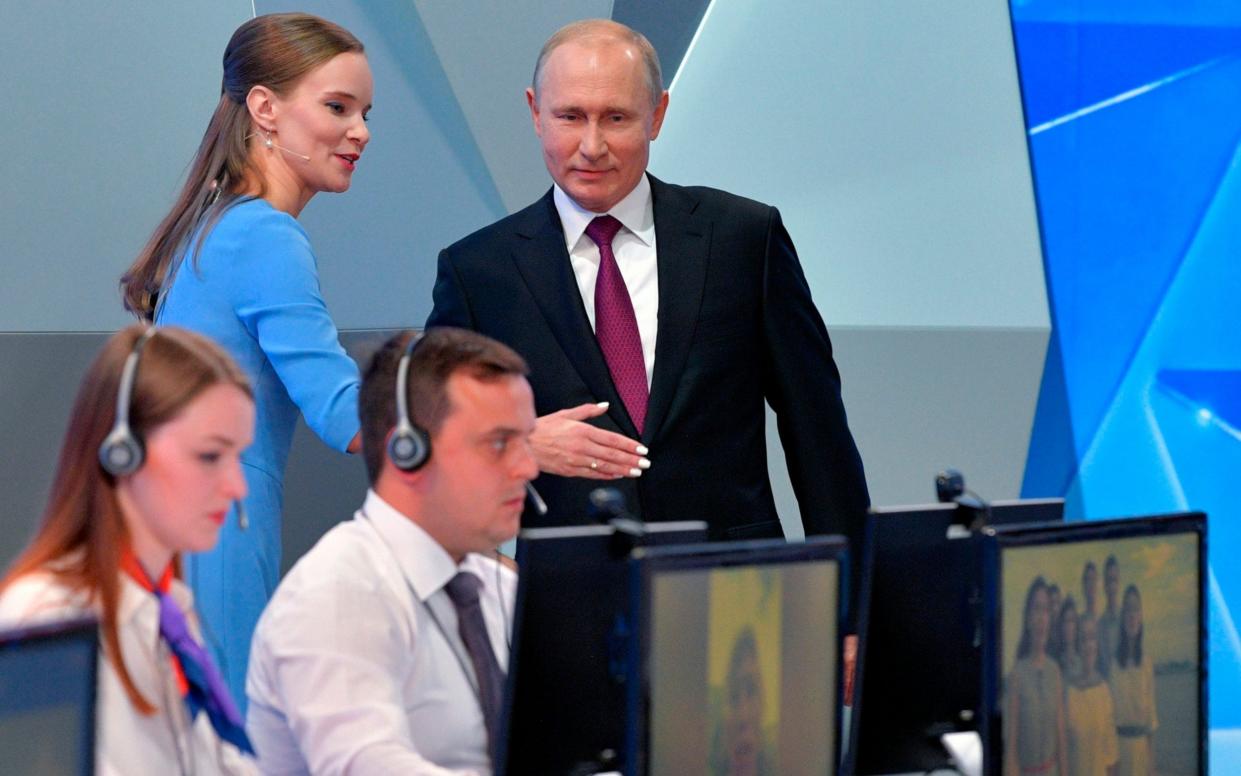1.5 million questions submitted to Putin for call-in show

More than 1.5 million questions have been submitted to president Vladimir Putin for his traditional television call-in show, a rare chance for Russians to have local issues solved in one stroke.
This was more than a million fewer than last year, suggesting Russians may be tiring of the carefully choreographed show despite a state pollster's finding that three-fourths of the population would follow the show.
While people can make queries of Mr Putin live on state television, the questions are screened in advance.
The 17th annual call-in show shortly after noon on Thursday. The first question came from a firefighter in the Kaliningrad region who asked how he could be expected to live on £125 a month.
The president responded that such a salary was lower than the minimum wage and should not have occurred.
State television correspondents then began speaking with patients and workers in three hospitals in far-flung parts of the country.
Among the topics Mr Putin was expected to address was a plan to ship rubbish from Moscow to the Arctic Arkhangelsk region, an idea that sparked months of protests.
Hundreds of activists in Shiyes, the town where a tip is being built for waste from the capital, had recorded a video appeal to Mr Putin and expected to be given a chance to go on air with him.
But authorities at the last minute moved the place of the live filming from Shiyes to a town 40 kilometres away in a possible attempt to reduce the number of activists taking part.
A controversial tip outside Moscow was closed after Mr Putin criticised it during his 2017 call-in show.
While the call-in show typically focuses on domestic issues, the Netherlands will want to see if Mr Putin addresses the shoot down of Malaysia Airlines flight 17 during the separatist conflict in eastern Ukraine in 2014.
On Wednesday, the Dutch-led investigation charged three Russian fighters with murder, displaying intercepted phone calls in which they asked Russian officials for anti-aircraft weapons and discussed deploying a missile delivered from Russia.
Another looming question is the fate of US investor Michael Calvey, who was arrested after tangling with a businessman linked to top Russian officials.
The US ambassador boycotted the St Petersburg economic forum over the case, which has further spooked foreign investors.

